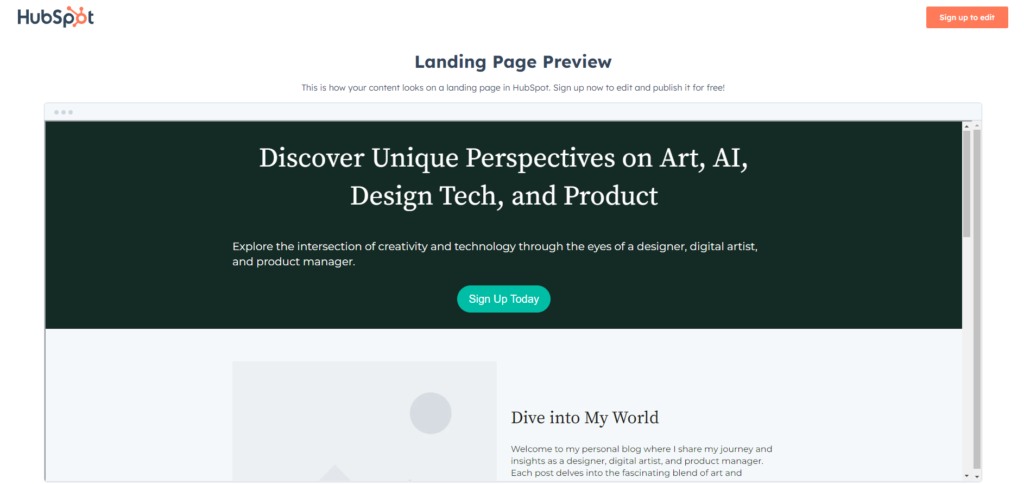At a recent hackathon at work, I explored the potential of creating custom GPTs (Introducing GPTs) and their impact on marketing and lead generation. I realized how custom GPTs could serve as a new content type for companies, enabling them to thrive in the AI-driven content space. Here’s a look at some successful implementations and how they can be leveraged to market products effectively.
The Hackathon
For the hackathon, I focused on the wealth of information available on the Dutch Tax Authority’s website (Belastingdienst). I downloaded all relevant PDFs I could find for small and medium businesses. My goal was to create a custom GPT that could serve as an informative resource for entrepreneurs in the Netherlands. Thus, BoB (Belastingen voor Ondernemers Bot) was born, trained on 250 pages of detailed tax information for Dutch entrepreneurs.
Initial Success
Creating my custom GPT was straightforward. I started by setting up the custom GPT framework, which took about 30 minutes. Using GPT-4o, I generated a system prompt to ensure the GPT’s responses had the correct behavior and tone. Next, I uploaded PDFs from the Dutch Tax Authority, and instructed my GPT to use this document as the main source for its answers. The process of integrating these documents was seamless and the whole process including research and finetuning took about 30 minutes. I used midjourney to create a cartoony tax advisor as the officicial mascotte for BoB and published my GPT!

Why Custom GPTs?
Custom GPTs offer significant benefits for companies aiming to enter the AI space by finding their niche and creating GPTs to enter that space. With over 150,000 public GPTs in the GPT Store and 6.1 million monthly visits from Google searches, there is an obvious demand for Custom GPTs (Source). Companies can leverage this trend to meet customer expectations and grow their presence. By creating custom GPTs tailored to their specific areas of expertise, firms can enhance their visibility and attract new leads. These GPTs can link back to the company’s products via API calls or URLs, driving traffic and opening new revenue streams. Additionally, OpenAI has announced plans to commercialize Custom GPTs by offering rewards for successful bots, which can create new revenue opportunities for companies. There is clear potential for marketing, growth, and future revenue.
Two Succesful Case Studies
Canva’s Design Assistant
Canva has brilliantly integrated custom GPTs to enhance user experience by pre-creating designs based on user input. When users interact with Canva’s GPT, it generates a design that can be directly linked to Canva’s platform for further editing.
- Users provide basic design preferences or requirements to the GPT. The GPT then generates a preliminary design, which is linked to a Canva file. Users can click through to Canva to make adjustments and edits with a editable file directly from their CustomGPT.
- This approach not only drives traffic to Canva’s platform but also demonstrates the power and convenience of their AI tools, enhancing user satisfaction and retention.
- Try it: Canva’s CustomGPT

HubSpot’s Landing Page Creator
HubSpot, similarly, has utilized custom GPTs to streamline the creation of landing pages.
- Users enter details about their product or service, based on a number of questions which the Hubspot GPT is trained to ask, and the GPT generates a tailored landing page. Afterwards the users are directed to the HubSpot website with a preview of their newly created page and a CTA urging users to create a free account to edit and publish their new landing page!
- By providing a quick and easy solution for creating landing pages, HubSpot not only attracts potential customers who may be intimidated by the technical aspects of landing page design but also showcases the capabilities of their broader marketing suite.
- Try it: HubSpot’s CustomGPT

Conclusion
In conclusion, custom GPTs offer a compelling new content type for companies looking to innovate and grow. By leveraging these AI-driven tools, businesses can create valuable resources, generate leads, and establish a strong presence in the AI content space. My experience at the hackathon demonstrated that with minimal investment in time, creating custom GPTs can yield significant benefits, positioning any company as a leader in AI-driven solutions within their niche.
